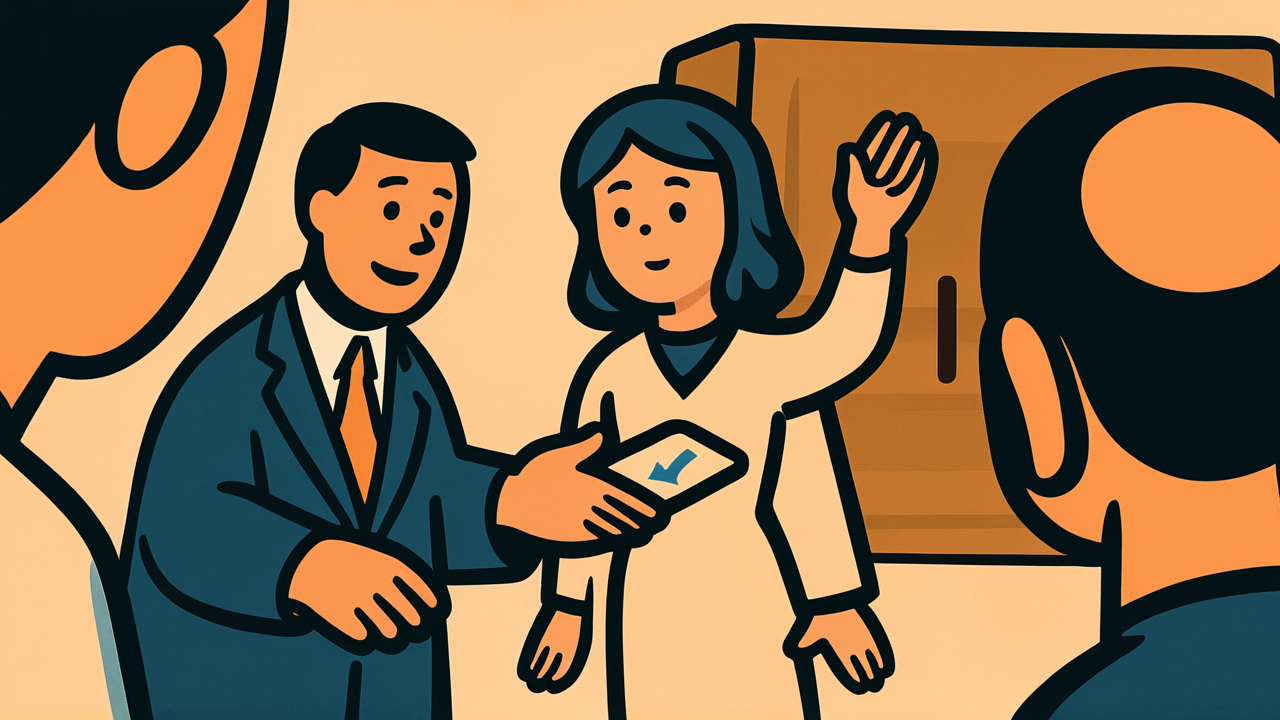How to Read “己の欲する所を人に施せ”
Onore no yokusuru tokoro wo hito ni hodokose
Meaning of “己の欲する所を人に施せ”
This proverb means “Give to others the same things you wish for or that would bring you joy.”
In other words, it teaches the importance of first showing others the kindness and gentleness you would like to receive yourself. Rather than expecting something in return from others, it expresses the spirit of proactive compassion—taking the initiative to do for others what would make you happy if it were done for you.
This proverb is used in situations where you act with consideration for others’ feelings in human relationships. For example, when you see someone in trouble and think “I would want help if I were in their position” and extend a helping hand, or when someone is tired and you think “I would want words of comfort if I were in their place” and speak to them. Even today, this teaching continues to be beloved by many as a fundamental mindset for building good human relationships.
Origin and Etymology
This proverb actually originates from the ancient Chinese classic “The Analects.” When Confucius’s disciple Zigong asked, “Is there one word that can serve as a principle of conduct for life?” Confucius replied with the teaching “Do not impose on others what you do not wish for yourself,” which is considered the original source.
Interestingly, during the process of transmission to Japan, “what you do not wish” changed to “what you desire.” This is thought to be not merely a mistransmission, but influenced by Japanese cultural background. The Chinese original was a passive admonition meaning “don’t do to others what you dislike,” but in Japan it transformed into a positive expression of compassion meaning “give to others what you wish for yourself.”
This change is deeply connected to Japan’s spirit of “omotenashi” (hospitality) and the culture of thinking from others’ perspectives. It frequently appeared in moral books and instructional texts during the Edo period, becoming widely established as merchants’ principles and samurai education. This represents an interesting example of cultural fusion, where Confucian thought underwent uniquely Japanese interpretation to become established as a more proactive and warm teaching.
Usage Examples
- She always takes care of newcomers attentively with the spirit of “What oneself desires, bestow upon people”
- As the saying “What oneself desires, bestow upon people” goes, let’s make an effort to greet others first
Modern Interpretation
In modern society, this proverb has taken on new meanings and challenges. With the widespread adoption of social media, many people seek “likes,” empathy, and recognition. Following the spirit of this proverb, it becomes important to first send warm reactions to others’ posts and leave encouraging comments.
However, in modern times, diversification of values has progressed. What brings you joy is not necessarily what makes others happy. For example, someone who likes surprises might give them to others, only to find that the recipient feels bothered. Modern interpretation requires more delicate compassion—”putting yourself in the other person’s position and thinking about what that person would likely want, then acting accordingly.”
With technological advancement, we can now connect with more people than ever before. Now that remote work and online communication have become commonplace, the importance of conveying caring feelings for others even through screens has increased. Even with a single message, by being mindful of writing in a way that would make you happy to receive, you can build warm human relationships even in digital spaces.
When AI Hears This
This contrast between the “proactive Golden Rule” and the Western “passive Golden Rule” highlights fundamental differences in how Eastern and Western civilizations view human nature.
Christianity’s “Do not do unto others what you would not have them do unto you” sees human nature as inherently “sinful” and begins morality with “avoiding harm.” This is defensive thinking that seeks “minimal good.” In contrast, Confucius’s teaching trusts human nature as inherently “good” and advocates actively sharing positive things with others.
What’s fascinating is the connection to “loss aversion bias” revealed in neuroscience research. Since humans react 2.5 times more strongly to losing something than to gaining it, the Western passive approach could be said to better align with our psychological characteristics.
However, Eastern philosophy attempts to transcend these biological constraints and aim for an “ideal human image.” The Confucian concept of the “gentleman” (junzi) exemplifies this, seeking moral perfection that goes beyond natural human tendencies.
Looking at modern society, laws are Western-style lists of “things you shouldn’t do,” while volunteer culture and social contribution are closer to the Eastern idea of “proactive good deeds.” Perhaps a richer ethical society can be achieved when these two approaches complement each other.
Lessons for Today
What this proverb teaches us today is that the foundation of human relationships is the attitude of “me first.” Rather than waiting for kindness from others, by first showing others the gentleness we would like to receive, warm connections are born.
In modern society, amid busyness and competition, we tend to think only of ourselves. However, a small gesture of consideration or word of encouragement can brighten someone’s entire day. Try saying to a tired colleague the words you would want to hear when you’re exhausted. Do for a troubled friend what you would want done for you when you’re worried.
What’s important is not expecting anything in return. By acting with the pure feeling of “I hope this makes them happy,” your own heart becomes enriched. The accumulation of small kindnesses will eventually build great trust relationships and spread a circle of warm human connections around you. Starting today, why not light a small flame in someone’s heart with the spirit of “me first”?



Comments